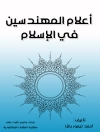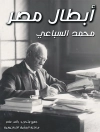During the last four decades the German Revolution 1918/19 has only attracted little scholarly attention.
This volume offers new cultural historical perspectives, puts this revolution into a wider time frame (1916-23), and coheres around three interlinked propositions: (i) acknowledging that during its initial stage the German Revolution reflected an intense social and political challenge to state authority and its monopoly of physical violence, (ii) it was also replete with »Angst«-ridden wrangling over its longer-term meaning and direction, and (iii) was characterized by competing social movements that tried to cultivate citizenship in a new, unknown state.
Kup ten ebook, a 1 kolejny otrzymasz GRATIS!
Język Angielski ● Format PDF ● Strony 266 ● ISBN 9783839427347 ● Rozmiar pliku 1.3 MB ● Redaktor Klaus Weinhauer & Anthony McElligott ● Wydawca transcript Verlag ● Opublikowany 2015 ● Ydanie 1 ● Do pobrania 24 miesięcy ● Waluta EUR ● ID 4193220 ● Ochrona przed kopiowaniem Społeczny DRM












